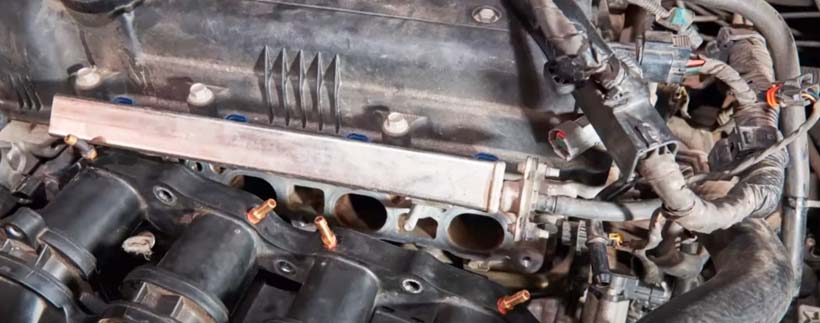When we talk about vehicles, many intricate parts and components make up the entirety of the machine. Among the myriad of essential parts, the intake manifold gasket might seem minor but holds significant importance. This component acts as a sealant between the intake manifold and the engine. It primarily ensures that there is a seamless flow of air and fuel to the engine. Without it, the car wouldn’t run efficiently. However, this component doesn’t last forever. Due to various reasons, including regular wear and tear, this gasket can get damaged or degrade over time. When this happens, you’ll start to notice certain symptoms that indicate it’s failing. Identifying these symptoms early on can save you from a more significant headache and expenses in the future.
The Critical Role of the Intake Manifold Gasket
At a glance, a gasket might seem like a simple piece of material. However, the intake manifold gasket holds the responsibility of ensuring that the air and fuel mixture in the engine is perfect. This mixture is crucial for the vehicle to run optimally. When the gasket is in good condition, you can expect optimal fuel consumption, smooth engine performance, and reduced harmful emissions. However, nothing lasts forever. Over time, due to constant exposure to heat and pressure, this gasket can wear down. When this happens, its efficiency in sealing the engine from leaks diminishes, leading to a host of issues that can impact your vehicle’s performance.

Signs of a Failing Intake Manifold Gasket
Any component’s wear and tear come with a set of symptoms, and the intake manifold gasket is no exception. Being aware of these symptoms can help you address them before they escalate:
-
Coolant Leaks: The most common sign that your intake manifold gasket is failing is coolant leaks. You might notice a greenish fluid around the engine or spots where you usually park.
-
Engine Misfires: When there’s a leak, the air-fuel mixture can be disrupted, leading to engine misfires. This means your engine won’t run smoothly and might stutter at times.
-
Decreased Engine Performance: If the gasket is compromised, you’ll feel a significant drop in your vehicle’s performance. It won’t be as responsive, and you might also notice a reduction in fuel efficiency.
-
Overheating Engine: The engine’s temperature can rise when the gasket isn’t working correctly. You might notice the temperature gauge shooting up, indicating that the engine is overheating.
Consequences of Ignoring the Symptoms
Every car part has a role, and the intake manifold gasket is no different. If you don’t pay attention to problems with it, bigger issues can start to show up in your car. When this gasket doesn’t work properly, coolant can get mixed with the engine oil. This is bad news because it can damage many parts inside your engine, leading to more problems and possibly a shorter engine life. Also, if the engine doesn’t get the right mix of air and fuel, it will start to use more fuel than usual. This means more trips to the gas station and more money spent. Over time, this will cause the engine to wear out faster, leading to even more repair costs. On top of all these, if these problems keep getting ignored, they can make your car unsafe to drive.
Addressing the Problem
It’s always a good idea to look after your car. When you think something might be wrong, especially with the intake manifold gasket, you should take it to a mechanic. Getting it checked and fixed early can help you avoid bigger problems and expenses in the future. It’s just like when we feel sick, we see a doctor before it gets worse. Also, regular car check-ups are important. It’s like having a routine doctor visit to make sure everything is okay. This way, small problems can be found and fixed before they turn into big ones. For those who are looking to make their car even better, we have an article on the Best Exhaust System for Toyota Tacoma. It explains how a good exhaust system can make a big difference in how your car performs.



